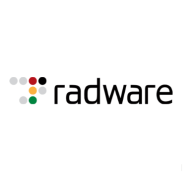

Kaspersky DDoS Protection and Radware DDoS are key players in the cybersecurity field, focusing on defending against distributed denial-of-service attacks. Kaspersky stands out with a user-friendly setup and responsive customer support, while Radware offers a more comprehensive feature set, providing significant value despite its higher pricing.
Features: Kaspersky emphasizes real-time traffic monitoring, preemptive mitigation strategies, and an easy user interface. In contrast, Radware focuses on advanced threat intelligence, robust attack management, and adaptability to varying threats, giving it an edge in feature depth.
Ease of Deployment and Customer Service: Kaspersky offers a seamless deployment process with strong customer support to ensure rapid integration and assistance. Radware, although slightly more complex to deploy due to its extensive features, compensates with in-depth technical support.
Pricing and ROI: Kaspersky is priced competitively, appealing to budget-conscious organizations with a good return on investment. Radware's higher price is justified by its rich features, leading to substantial ROI for businesses seeking extensive protection.


Kaspersky DDoS Protection delivers a total, integrated DDoS attack
protection and mitigation solution that takes care of every stage that’s
necessary to defend your business. From continuous analysis of all of
your online traffic, through to alerting you about the possible presence of
an attack and then receiving your redirected traffic, cleaning your traffic
and returning ‘clean’ traffic to you, Kaspersky DDoS Protection provides
everything your business needs to defend against – and mitigate the effects
of – all types of DDoS attacks.
Radware DDoS provides robust multi-layer protection against distributed denial of service attacks, featuring real-time monitoring and anomaly detection. Its scalable cloud-based and on-site deployment options ensure effective safeguarding of critical infrastructure.
Offering comprehensive defense, Radware DDoS includes features like data scrubbing, signature updates, and SSL-based mitigation. Integrated platforms and a user-friendly interface streamline its deployment. With advanced reporting, analytics, and behavioral analysis powered by machine learning, users experience fewer false positives. Despite these strengths, users highlight the need for improved scalability, seamless deployment, and enhanced machine learning capabilities. Better documentation, pricing, and customer service remain areas of improvement.
What features does Radware DDoS offer?In industries like banking, telecom, and government, organizations employ Radware DDoS to protect networks from DDoS attacks. It ensures server, web service, and mail security while enabling traffic monitoring and unauthorized access blocking. Its cloud-based options serve entities seeking infrastructure security and network traffic analysis.
We monitor all Distributed Denial-of-Service (DDoS) Protection reviews to prevent fraudulent reviews and keep review quality high. We do not post reviews by company employees or direct competitors. We validate each review for authenticity via cross-reference with LinkedIn, and personal follow-up with the reviewer when necessary.